
This "Discovery Thinking" Forum will be the 12th presentation of the AAPG 100th Anniversary Committee's
program recognizing "100 Who Made a Difference." The forum will feature four invited speakers who will describe major discoveries in global exploration settings. This forum, combined with its counterpart into a day of Discovery Thinking, will celebrate how Creative Thinking Using Integrated Technology Leads to Giant and Super Giant Discoveries.
Each speaker and their associates overcame significant business, technical and professional challenges. Topics to
be discussed will include philosophy of exploration, stories from remarkable careers, professional insights, colorful anecdotes and lessons learned on the path to success. As technology advances and young geoscientists enter our profession, the organizers see continued interest in forums such as these. These forums provide a venue for explorers to discuss the personal side of success and what has been called the "art of exploration." As always, the audience is fortunate to hear the speakers share abundant technical data and insights derived from costly and hard won experience.
AAPG offers many technical sessions. "Discovery Thinking" forums fill an important gap in how technical and
professional skills combine to turn prospects into discoveries. Speakers are encouraged to share personal stories
about discoveries they know well, bring forward appropriate technical data and address questions from the audience and fellow explorers. Morning talks will emphasize exciting discoveries in global settings. Denver, an important center for both global and North American exploration, is a great venue to celebrate discoveries in both of these settings.
14242
This "Discovery Thinking" Forum will be the 12th presentation of the AAPG 100th Anniversary Committee's
program recognizing "100 Who Made a Difference." The forum will feature four invited speakers who will describe major discoveries in global exploration settings. This forum, combined with its counterpart into a day of Discovery Thinking, will celebrate how Creative Thinking Using Integrated Technology Leads to Giant and Super Giant Discoveries.
Each speaker and their associates overcame significant business, technical and professional challenges. Topics to
be discussed will include philosophy of exploration, stories from remarkable careers, professional insights, colorful anecdotes and lessons learned on the path to success. As technology advances and young geoscientists enter our profession, the organizers see continued interest in forums such as these. These forums provide a venue for explorers to discuss the personal side of success and what has been called the "art of exploration." As always, the audience is fortunate to hear the speakers share abundant technical data and insights derived from costly and hard won experience.
AAPG offers many technical sessions. "Discovery Thinking" forums fill an important gap in how technical and
professional skills combine to turn prospects into discoveries. Speakers are encouraged to share personal stories
about discoveries they know well, bring forward appropriate technical data and address questions from the audience and fellow explorers. Morning talks will emphasize exciting discoveries in global settings. Denver, an important center for both global and North American exploration, is a great venue to celebrate discoveries in both of these settings.
Panel_14242
Panel_14242


Monday, 01 June, 2015
Monday, 01 June, 2015
8:00 AM
11:50 AM
Colorado Convention Center
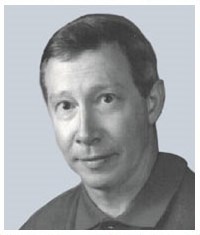
Salman Bloch was a truly unique individual who was as passionate about geology as he was devoted to the sport of bodybuilding. He grew up in Poland under Communist rule, a fact that profoundly shaped his personality and outlook on life. He immigrated to the United States to continue his education and start a new life in the West. He was a gifted speaker and writer and fluent in Russian, German, English and his native Polish. Sal received his M.S. degree from University of Wrocław in Poland and a Ph.D. from George Washington University and published numerous papers. After joining the petroleum industry in 1982, where he held research positions at Atlantic-Richfield (ARCO), Norsk Hydro and Texaco, Sal combined his geochemical skills with a newfound interest in sedimentary petrology. Sal was well respected for his dedication and commitment to the geological sciences. He will be remembered for his keen intellect, strong work ethic, dry wit and intense personality; he will definitely be missed.
14418
Salman Bloch was a truly unique individual who was as passionate about geology as he was devoted to the sport of bodybuilding. He grew up in Poland under Communist rule, a fact that profoundly shaped his personality and outlook on life. He immigrated to the United States to continue his education and start a new life in the West. He was a gifted speaker and writer and fluent in Russian, German, English and his native Polish. Sal received his M.S. degree from University of Wrocław in Poland and a Ph.D. from George Washington University and published numerous papers. After joining the petroleum industry in 1982, where he held research positions at Atlantic-Richfield (ARCO), Norsk Hydro and Texaco, Sal combined his geochemical skills with a newfound interest in sedimentary petrology. Sal was well respected for his dedication and commitment to the geological sciences. He will be remembered for his keen intellect, strong work ethic, dry wit and intense personality; he will definitely be missed.
Panel_14418
Panel_14418


Monday, 01 June, 2015
Monday, 01 June, 2015
8:00 AM
11:50 AM
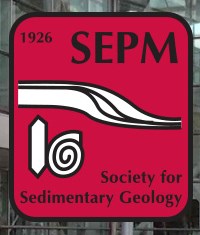
Join SEPM in the Exhibition Hall for all-day poster sessions. Channels are conduits through which fluids, sediment (suspended and bed-load) and dissolved loads are transported across the Earth surface. Their general geomorphologic expression is comparable similar in terrestrial, submarine and
extraterrestrial environments; however, formative sedimentary processes can be fundamentally different. For example, sinuosity and aspect ratio tend to be similar; however, submarine channels tend to be larger than fluvial channels and the stratigraphic records of fluvial and submarine channel deposits can be different. A key research challenge is the link between the geomorphic expression and stratigraphic record of channels. Rivers are more accessible to direct monitoring compared to submarine channels and the link between fluvial geomorphology and stratigraphy is better
understood. In the case of submarine channels, we commonly rely on the stratigraphic record to inform insights about formative processes and evolution.
14419
Join SEPM in the Exhibition Hall for all-day poster sessions. Channels are conduits through which fluids, sediment (suspended and bed-load) and dissolved loads are transported across the Earth surface. Their general geomorphologic expression is comparable similar in terrestrial, submarine and
extraterrestrial environments; however, formative sedimentary processes can be fundamentally different. For example, sinuosity and aspect ratio tend to be similar; however, submarine channels tend to be larger than fluvial channels and the stratigraphic records of fluvial and submarine channel deposits can be different. A key research challenge is the link between the geomorphic expression and stratigraphic record of channels. Rivers are more accessible to direct monitoring compared to submarine channels and the link between fluvial geomorphology and stratigraphy is better
understood. In the case of submarine channels, we commonly rely on the stratigraphic record to inform insights about formative processes and evolution.
Panel_14419
Panel_14419


Monday, 01 June, 2015
Monday, 01 June, 2015
8:30 AM
5:00 PM
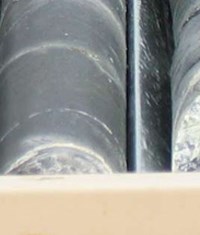
The rise of unconventional resources has fostered and necessitated a "back-to-the-rocks" approach to reservoir analysis. This group of presentations will showcase insights and innovations involving contemporary core analysis, and participants will have the opportunity to see the "raw data." Not only will presenters discuss core-based studies, but you will also view core samples used in those studies. Presentations will cover a range of topics including natural fractures, geochemistry and chemostratigraphy, ichnology and sedimentology, tight oil plays, analysis pores and pore systems.
14416
The rise of unconventional resources has fostered and necessitated a "back-to-the-rocks" approach to reservoir analysis. This group of presentations will showcase insights and innovations involving contemporary core analysis, and participants will have the opportunity to see the "raw data." Not only will presenters discuss core-based studies, but you will also view core samples used in those studies. Presentations will cover a range of topics including natural fractures, geochemistry and chemostratigraphy, ichnology and sedimentology, tight oil plays, analysis pores and pore systems.
Panel_14416
Panel_14416


Monday, 01 June, 2015
Monday, 01 June, 2015
8:30 AM
5:00 PM

This "Discovery Thinking" Forum will be the 13th presentation of the AAPG 100th Anniversary Committee's
program recognizing "100 Who Made a Difference." The forum will feature four invited speakers who will describe major discoveries in North American exploration settings. This forum, combined with its counterpart into a day of Discovery Thinking, will celebrate how Creative Thinking Using Integrated Technology Leads to Giant and Super Giant Discoveries.
Each speaker and their associates overcame significant business, technical and professional challenges. Topics to
be discussed will include philosophy of exploration, stories from remarkable careers, professional insights, colorful anecdotes and lessons learned on the path to success. As technology advances and young geoscientists enter our profession, the organizers see continued interest in forums such as these. These forums provide a venue for explorers to discuss the personal side of success and what has been called the "art of exploration." As always, the audience is fortunate to hear the speakers share abundant technical data and insights derived from costly and hard won experience.
AAPG offers many technical sessions. "Discovery Thinking" forums fill an important gap in how technical and
professional skills combine to turn prospects into discoveries. Speakers are encouraged to share personal stories
about discoveries they know well, bring forward appropriate technical data and address questions from the audience and fellow explorers. Afternoon talks will feature major and significant discoveries in North America. Denver, an important center for both global and North American exploration, is a great venue to celebrate discoveries in both of these settings.
14417
This "Discovery Thinking" Forum will be the 13th presentation of the AAPG 100th Anniversary Committee's
program recognizing "100 Who Made a Difference." The forum will feature four invited speakers who will describe major discoveries in North American exploration settings. This forum, combined with its counterpart into a day of Discovery Thinking, will celebrate how Creative Thinking Using Integrated Technology Leads to Giant and Super Giant Discoveries.
Each speaker and their associates overcame significant business, technical and professional challenges. Topics to
be discussed will include philosophy of exploration, stories from remarkable careers, professional insights, colorful anecdotes and lessons learned on the path to success. As technology advances and young geoscientists enter our profession, the organizers see continued interest in forums such as these. These forums provide a venue for explorers to discuss the personal side of success and what has been called the "art of exploration." As always, the audience is fortunate to hear the speakers share abundant technical data and insights derived from costly and hard won experience.
AAPG offers many technical sessions. "Discovery Thinking" forums fill an important gap in how technical and
professional skills combine to turn prospects into discoveries. Speakers are encouraged to share personal stories
about discoveries they know well, bring forward appropriate technical data and address questions from the audience and fellow explorers. Afternoon talks will feature major and significant discoveries in North America. Denver, an important center for both global and North American exploration, is a great venue to celebrate discoveries in both of these settings.
Panel_14417
Panel_14417


Monday, 01 June, 2015
Monday, 01 June, 2015
1:15 PM
5:05 PM
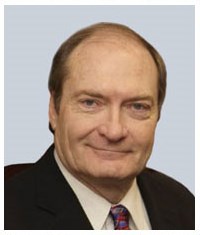
The Michael T. Halbouty lecture series – funded by the AAPG Foundation – is an ongoing special event at the AAPG Annual Convention & Exhibition. Lecture topics are designed to focus either on wildcat exploration in any part of the world where major discoveries might contribute significantly to petroleum reserves, or space exploration where astrogeological knowledge would further mankind’s ability to develop resources on Earth and in the Solar System.
This year's Michel T. Halbouty Lecture speaker is Dr. Thomas S. Ahlbrandt, President, Thomasson Partners Associates, Inc. and he will discuss his talk: From Petroleum Scarcity to Abundance: Opportunities and Implications for the U.S. and World.
For 150 years the hydrocarbon industry has focused on about one quarter of the recoverable oil resource, and we are just now turning to the vast resource plays that are part of the Total Petroleum System (TPS) assessed by the United States Geological Survey (USGS) in 2000 and here updated through 2012. The TPS concept focused on the source rock and principal reservoir and recognized the conventional as well as unconventional (resource) components of the petroleum system. However, unconventional resources were basically only being developed in the U.S. at the time of the USGS assessment and were not included in the 2000 study. The USGS 2000 study, also summarized in "AAPG Memoir 86", included 149 provinces exclusive of the U.S. and data as of 1/1996. Much has changed since that time. Dr. Ahlbrandt will present the updated views through 2013 for 175 provinces for the petroleum endowment elements of conventional undiscovered resources, reserve growth, cumulative production and remaining reserves and now amplified considerably by unconventional (or continuous resources). The changes in the global hydrocarbon endowment through 2013 for these provinces are significant with the global oil endowment up nearly 50%, gas endowment up by nearly 25% and oil and gas reserves increased each by over 50% in spite of 16 additional years of production. The historical and data driven support for this petroleum revolution will be discussed to address the issue of why have the predicted global oil and natural gas shortages and demise of civilization by 2010 related to these vanishing supplies not occurred?
Thomas S. Ahlbrandt formed a consulting group (Ahlbrandt Consulting) specializing in conventional and unconventional resources globally. He also serves as the President of Thomasson Partners Associates, and Senior Vice President of Exploration for Systems Petroleum all located in Denver, Colorado. Previously he was the Vice President of Exploration for Falcon Oil and Gas in Denver, Colorado where he managed unconventional oil and natural gas exploration in Hungary (Mako Trough), Australia (Beetaloo Basin), and South Africa (Karoo Basin). “AAPG Memoir 86: Global Resource Estimates from Total Petroleum Systems” also summarizes this global petroleum analysis and was the senior author. He has written global resource outlooks for OPEC and in 2013 completed a book with the Energy Intelligence Group (London), “The Global Petroleum Revolution: A New Era of Opportunity” which discusses the global petroleum endowment and past and future petroleum forecasts. He recently discovered petroleum in the world’s oldest petroleum system (1.4 billion year old rocks in the Beetaloo Basin, Australia) and is a contributor to the recent AAPG volume on the Tethys contributing to the petroleum system evaluation of the Middle East and North Africa.
14248
The Michael T. Halbouty lecture series – funded by the AAPG Foundation – is an ongoing special event at the AAPG Annual Convention & Exhibition. Lecture topics are designed to focus either on wildcat exploration in any part of the world where major discoveries might contribute significantly to petroleum reserves, or space exploration where astrogeological knowledge would further mankind’s ability to develop resources on Earth and in the Solar System.
This year's Michel T. Halbouty Lecture speaker is Dr. Thomas S. Ahlbrandt, President, Thomasson Partners Associates, Inc. and he will discuss his talk: From Petroleum Scarcity to Abundance: Opportunities and Implications for the U.S. and World.
For 150 years the hydrocarbon industry has focused on about one quarter of the recoverable oil resource, and we are just now turning to the vast resource plays that are part of the Total Petroleum System (TPS) assessed by the United States Geological Survey (USGS) in 2000 and here updated through 2012. The TPS concept focused on the source rock and principal reservoir and recognized the conventional as well as unconventional (resource) components of the petroleum system. However, unconventional resources were basically only being developed in the U.S. at the time of the USGS assessment and were not included in the 2000 study. The USGS 2000 study, also summarized in "AAPG Memoir 86", included 149 provinces exclusive of the U.S. and data as of 1/1996. Much has changed since that time. Dr. Ahlbrandt will present the updated views through 2013 for 175 provinces for the petroleum endowment elements of conventional undiscovered resources, reserve growth, cumulative production and remaining reserves and now amplified considerably by unconventional (or continuous resources). The changes in the global hydrocarbon endowment through 2013 for these provinces are significant with the global oil endowment up nearly 50%, gas endowment up by nearly 25% and oil and gas reserves increased each by over 50% in spite of 16 additional years of production. The historical and data driven support for this petroleum revolution will be discussed to address the issue of why have the predicted global oil and natural gas shortages and demise of civilization by 2010 related to these vanishing supplies not occurred?
Thomas S. Ahlbrandt formed a consulting group (Ahlbrandt Consulting) specializing in conventional and unconventional resources globally. He also serves as the President of Thomasson Partners Associates, and Senior Vice President of Exploration for Systems Petroleum all located in Denver, Colorado. Previously he was the Vice President of Exploration for Falcon Oil and Gas in Denver, Colorado where he managed unconventional oil and natural gas exploration in Hungary (Mako Trough), Australia (Beetaloo Basin), and South Africa (Karoo Basin). “AAPG Memoir 86: Global Resource Estimates from Total Petroleum Systems” also summarizes this global petroleum analysis and was the senior author. He has written global resource outlooks for OPEC and in 2013 completed a book with the Energy Intelligence Group (London), “The Global Petroleum Revolution: A New Era of Opportunity” which discusses the global petroleum endowment and past and future petroleum forecasts. He recently discovered petroleum in the world’s oldest petroleum system (1.4 billion year old rocks in the Beetaloo Basin, Australia) and is a contributor to the recent AAPG volume on the Tethys contributing to the petroleum system evaluation of the Middle East and North Africa.
Panel_14248
Panel_14248


Monday, 01 June, 2015
Monday, 01 June, 2015
5:10 PM
6:00 PM
Colorado Convention Center

Channels are conduits through which fluids, sediment (suspended and bed-load) and dissolved loads are transported
across the Earth surface. Their general geomorphologic expression is comparable similar in terrestrial, submarine and
extraterrestrial environments; however, formative sedimentary processes can be fundamentally different. For example,
sinuosity and aspect ratio tend to be similar; however, submarine channels tend to be larger than fluvial channels and
the stratigraphic records of fluvial and submarine channel deposits can be different. A key research challenge is the
link between the geomorphic expression and stratigraphic record of channels. Rivers are more accessible to direct
monitoring compared to submarine channels and the link between fluvial geomorphology and stratigraphy is better
understood. In the case of submarine channels, we commonly rely on the stratigraphic record to inform insights about
formative processes and evolution.
14420
Channels are conduits through which fluids, sediment (suspended and bed-load) and dissolved loads are transported
across the Earth surface. Their general geomorphologic expression is comparable similar in terrestrial, submarine and
extraterrestrial environments; however, formative sedimentary processes can be fundamentally different. For example,
sinuosity and aspect ratio tend to be similar; however, submarine channels tend to be larger than fluvial channels and
the stratigraphic records of fluvial and submarine channel deposits can be different. A key research challenge is the
link between the geomorphic expression and stratigraphic record of channels. Rivers are more accessible to direct
monitoring compared to submarine channels and the link between fluvial geomorphology and stratigraphy is better
understood. In the case of submarine channels, we commonly rely on the stratigraphic record to inform insights about
formative processes and evolution.
Panel_14420
Panel_14420


Tuesday, 02 June, 2015
Tuesday, 02 June, 2015
8:00 AM
11:50 AM
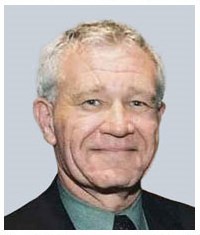
Paul "Mitch" Harris hails from West Virginia University where he earned his BS and MS in Geology. Mitch migrated to the University of Miami, for his PhD where he focused on the sequence of modern sediments. Mitch joined Getty Oil briefly then Gulf Oil until they merged with Chevron and Mitch moved to California. Mitch has spent his career thus far linking modern and ancient systems and has worked everything from the Permian Basin to Super Giants like Tengiz, while making countless trips to the modern to teach, ask questions, observe and apply concepts to the subsurface. Mitch is adjunct professor at the University of Miami and Rice. In 2010-2011, Mitch served as President of SEPM, and he’s been awarded SEPM Honorary Membership, Honorary Life Award from PBSEPM, AAPG Honorary Membership, Wallace E. Pratt Memorial Award, Robert H.Dott, Sr. Memorial Award twice and John W. Shelton Search & Discovery Award.
14392
Paul "Mitch" Harris hails from West Virginia University where he earned his BS and MS in Geology. Mitch migrated to the University of Miami, for his PhD where he focused on the sequence of modern sediments. Mitch joined Getty Oil briefly then Gulf Oil until they merged with Chevron and Mitch moved to California. Mitch has spent his career thus far linking modern and ancient systems and has worked everything from the Permian Basin to Super Giants like Tengiz, while making countless trips to the modern to teach, ask questions, observe and apply concepts to the subsurface. Mitch is adjunct professor at the University of Miami and Rice. In 2010-2011, Mitch served as President of SEPM, and he’s been awarded SEPM Honorary Membership, Honorary Life Award from PBSEPM, AAPG Honorary Membership, Wallace E. Pratt Memorial Award, Robert H.Dott, Sr. Memorial Award twice and John W. Shelton Search & Discovery Award.
Panel_14392
Panel_14392


Tuesday, 02 June, 2015
Tuesday, 02 June, 2015
1:15 PM
5:05 PM

Channels are conduits through which fluids, sediment (suspended and bed-load) and dissolved loads are transported across the Earth surface. Their general geomorphologic expression is comparable similar in terrestrial, submarine and extraterrestrial environments; however, formative sedimentary processes can be fundamentally different. For example, sinuosity and aspect ratio tend to be similar; however, submarine channels tend to be larger than fluvial channels and the stratigraphic records of fluvial and submarine channel deposits can be different. A key research challenge is the link between the geomorphic expression and stratigraphic record of channels. Rivers are more accessible to direct monitoring compared to submarine channels and the link between fluvial geomorphology and stratigraphy is better understood. In the case of submarine channels, we commonly rely on the stratigraphic record to inform insights about formative processes and evolution.
14421
Channels are conduits through which fluids, sediment (suspended and bed-load) and dissolved loads are transported across the Earth surface. Their general geomorphologic expression is comparable similar in terrestrial, submarine and extraterrestrial environments; however, formative sedimentary processes can be fundamentally different. For example, sinuosity and aspect ratio tend to be similar; however, submarine channels tend to be larger than fluvial channels and the stratigraphic records of fluvial and submarine channel deposits can be different. A key research challenge is the link between the geomorphic expression and stratigraphic record of channels. Rivers are more accessible to direct monitoring compared to submarine channels and the link between fluvial geomorphology and stratigraphy is better understood. In the case of submarine channels, we commonly rely on the stratigraphic record to inform insights about formative processes and evolution.
Panel_14421
Panel_14421


Tuesday, 02 June, 2015
Tuesday, 02 June, 2015
1:15 PM
5:05 PM
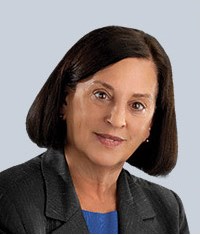
A panel including representatives from the Department of Energy (DOE), academia, industry and national lab will explain the planned subsurface research initiative and solicit feedback on fundamental and applied research needs.
The subsurface provides a majority of the world’s energy and offers great potential for CO2, nuclear waste and energy storage. Despite decades of research, and recent successes in new extraction methods, subsurface energy resources overall are underutilized and environmental risks are not well integrated into strategies. The U.S. DOE and National Laboratories are advancing an innovative crosscutting Subsurface Initiative, focused on revolutionizing sustainable subsurface energy production and storage. This challenge will require transformational improvements in our ability to access, characterize, predict and adaptively manipulate fracture and flow processes over scales ranging from nanometers to kilometers. This town hall will describe and solicit community feedback on the initiative research priorities.
14252
A panel including representatives from the Department of Energy (DOE), academia, industry and national lab will explain the planned subsurface research initiative and solicit feedback on fundamental and applied research needs.
The subsurface provides a majority of the world’s energy and offers great potential for CO2, nuclear waste and energy storage. Despite decades of research, and recent successes in new extraction methods, subsurface energy resources overall are underutilized and environmental risks are not well integrated into strategies. The U.S. DOE and National Laboratories are advancing an innovative crosscutting Subsurface Initiative, focused on revolutionizing sustainable subsurface energy production and storage. This challenge will require transformational improvements in our ability to access, characterize, predict and adaptively manipulate fracture and flow processes over scales ranging from nanometers to kilometers. This town hall will describe and solicit community feedback on the initiative research priorities.
Panel_14252
Panel_14252


Tuesday, 02 June, 2015
Tuesday, 02 June, 2015
5:10 PM
6:40 PM
Colorado Convention Center